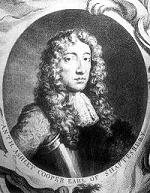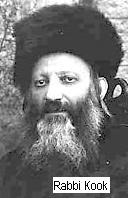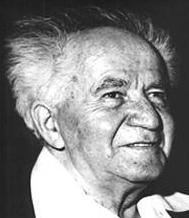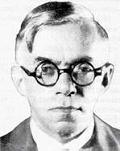ZIONISM

In 1840, Antony Ashley Cooper, the 7th Earl of Shaftsbury, published a work entitled State Prospects for the Jew, which was, in fact, the founding document of modern Zionism. In the pompous tone of a British nobleman, Shaftsbury wrote that the Jews, "though admittedly a stiff-necked, dark-hearted people," should be encouraged to emigrate to Palestine, because Palestine was "a country without a nation, and the Jews were "a nation without a country." At the time of this writing, the British were in the process of rapidly expanding their Empire, principally through the projection of naval power into the East. Meanwhile, the Ottoman Empire was collapsing, and leaving key territory vulnerable to foreign control. One such territory was the strategically located Palestine. Whoever controlled Palestine, controlled the land-route from Africa to Eurasia, as well as the shortest potential sea-route from the Mediterranean to the Indian Ocean, and beyond. It is no wonder that the French, the Russians, and, most especially, the British coveted Palestine.
The same year—1840—a British preacher by the name of John Nelson Darby published a work entitled The Hopes of the Church of God in Connexion with the Destiny of the Jews and the Nations as Revealed in Prophesy. Darby argued that the creation of a Jewish state in Palestine was part of a divine plan. History shows that it was actually a British plan. The full intent of the British is verified in an 1845 British Colonial Office report which bluntly stated that, "the establishment of the Jewish nation in Palestine, as a protected state under the guardianship of Great Britain would place us in a commanding position in the Levant from whence to check the process of encroachment, to overawe our enemies, and, if necessary, repel their advances." Quite simply, the British created modern Zionism in order to control Palestine.
The competition was stiff, especially from the Russians, who commanded a large naval fleet based in the Black Sea, and had significant influence in the remains of the Ottoman Empire. In order to control Palestine, the British would have to beat back the Russians. By 1850, war was inevitable.

The key propagandist for the war-drive was none other than John Nelson Darby. His numerous sermons went approximately like this: Russia is the source of mankind’s greatest evil. The return of the Jews to Palestine is essential as a precondition for the return of Jesus. True believers who support the creation of a Jewish state would soon be "raptured" into heaven, thereby escaping a "Great Tribulation" brought on by the "Antichrist." The Great Tribulation would conclude when Jesus destroys the evil Russian army at the "Battle of Armageddon." Jesus would then establish a kingdom with the few surviving true believers, who would all live together in paradise for 1000 years.
Darby’s message worked quite well. Soon he imported it to the United States, where it also became quite popular, particularly the demonization of Russia, which had been an American ally. With the United States under the influence of Darbyism, Britain moved to defeat Russia in the Crimean War of 1854. By 1865, British hegemony in Palestine was complete. Nonetheless, very few Jews were interested in emigrating to the region, and most were opposed to the creation of a Jewish state.
In 1891, however, William Blackstone, a Chicago real-estate magnate who was a disciple of John Nelson Darby, organized a memorial petition to President Benjamin Harrison, calling upon the United States to aid Britain in creating a Jewish homeland in Palestine. The memorial included the signatures of J.P. Morgan, John D. Rockefeller, the Speaker of the House of Representatives, the Chief Justice of the Supreme Court, and nearly 400 other influential persons. Thus, there was an active Zionist movement in the United States five years before Theodore Herzl (who is fraudulently heralded as the founder of modern Zionism) published his famous work, The Jewish State. Finally, in 1897, Herzl organized the first World Zionist Congress in Basel, Switzerland.
During World War I, British support for Zionism was renewed. The Turks had allied with the Germans, and the British needed the support of the scant 90,000 Jews in Palestine as a buffer against Turkish designs. Hence, the famous Balfour Declaration of 1917 was promulgated. At the same time, however, the British had promised the Arabs of the region an independent sovereign state in exchange for Arab support. As if two, contradictory promises were not enough, the British also secretly negotiated the Sykes-Picot treaty which promised the French control over vital territory which had been promised to both Jews and Arabs. It is clear that the British plan was to never allow the emergence of a stable, independent state in the region that could challenge British strategic control. This is a problem that plagues the world to the present day.

Following the WWI, the British, once again, were firmly in control of Palestine. In the following years, British policy was to foster violence and dissension between Jews and Arabs whenever their respective forces moved toward collaboration. For example, in 1919, Chaim Weizmann, the leader of the Zionist movement, and Emir Faisal, the son of the Sherif of Mecca, signed an agreement "mindful of the racial kinship and ancient bonds existing between the Arabs and the Jewish people, and realising that the surest means of working out the consummation of their national aspirations is through the closest possible collaboration." The British responded in 1920 by organizing the first of a series of Arab-Jewish riots, and appointing fanatics to key positions. In 1921, for example, Rabbi Abraham Isaac Kook was appointed to head the Ashkenazic Rabbinate in Palestine, though he was unpopular even among the Jews. Kook taught the following: The collective soul of Israel is the only real soul the Jews have. This collective soul—due to the sinfulness of man—has been in exile. The return of the Jews to Zion signals the dawn of a Messianic Age, and, most especially, the Jews must conquer all of Zion. The Jews must forcefully remove the Islamic population of Israel, and rebuild the ancient Jewish Temple in place of the Haram al Sharif—the second most holy site of Islam—before the Messiah will come. Thus, war is good.
On the Arab side, the British appointed the fanatically anti-Jewish Haj Amin el Husseini—who later became a supporter of Adolph Hitler—as the Grand Mufti of Jerusalem. The situation exploded in 1929, when British instigated disputes over the Holy places of Jerusalem resulted in 133 Jewish dead, and 116 Arab dead.
With the 1933 rise of Hitler in Germany, Jewish emigration to Palestine rose dramatically. Most of the previous Jewish immigrants had come to Palestine to escape the pogroms of the British-financed White Guard of Russia, which killed approximately 30,000 Jews around the time of the Bolshevik Revolution. It is well known that Hitler also enjoyed the benefits of British, and American finance, including that of the Union Banking Corporation, whose daily affairs were conducted by Prescott Bush, father of President George Bush I. Union Banking Corporation was seized by the Roosevelt administration under the authority of the Trading with the Enemy Act in 1942, ten months after the United States had entered WWII against the Nazis.
Following the fresh outbreak of Arab-Jewish riots in 1936, a British Royal Commission cynically reported that, "There is no common ground between them. The Arab community is predominantly Asiatic in character, the Jewish community predominantly European. They differ in religion and in language. Their cultural and social life, their way of thought and conduct, are as incompatible as their national aspirations." Between 1936 and the end of WWII, the British armed Jews and Arabs alike, and encouraged open hostility. Finally, in 1947, the United Nations recommended a British withdrawal from Palestine, and a peaceful partition of Palestinian territory. However, when the British mandate in Palestine finally ended in 1948, the British, according to David Ben Gurion, the first Prime Minister of Israel, "did nothing to assist the implementation of the UN plan, and very little to maintain a semblance of order in the country."

In spite of all the British cynicism and perfidy, Ben Gurion had a noble vision of Zionism. Ben Gurion wrote, "It is the duty of rich, developed, and progressive nations to do their utmost to succor the poor and backward." He wondered, "Can Israel assist in the progress and development of Asia and Africa? For Israel it is both a moral and political issue, and from both aspects there is no doubt that Israel must look upon such aid as a historical mission, as necessary for Israel as it is beneficial to those we help." Ben-Gurion rallied the support of many countries of the developing sector and hosted a series of conferences on the subject of economic development of the former colonies. Moreover, Ben Gurion regarded the Biblical injunction, ‘Thou shalt love thy neighbor as thyself’ (Leviticus 19:18), as the essence of Judaism.

Opposing Ben Gurion and his vision, were the followers of Vladimir Jabotinsky, the right wing, Zionist leader who Ben Gurion labeled "Vladimir Hitler" on account of the latter’s open fascistic tendencies. Jabotinsky regarded every Arab Palestinian as an enemy and demanded a racially pure Israel. Jabotinsky’s activism in the foundation of Israel spawned such groups as the Betar and the terrorist Stern Gang, elements of which eventually formed the Likud party of Israeli Prime-Ministers Yitzhak Shamir, Benjamin Netanyahu, and Ariel Sharon.
The right wing of Zionism, however, was not popular in Israel until after the 1967 Six Day War, in which the Israeli Army destroyed the combined armies of Egypt, Syria, Jordan, and Lebanon, and seized control of the West Bank, Gaza Strip, and Golan Heights. For many moderate Jews and religious leaders who had opposed the Israeli State on religious grounds, the victory was seen as a stunning affirmation of the will of God in the aspirations of Zionism. Finally, God had given the longsuffering Jewish people an independent, clear, and decisive victory over its enemies, and, moreover, territorial control over the holy sites of Judaism—in particular, the Temple Mount.
Today, Zionism has been radicalized. The modern day heirs of Rabbi Kook have multiplied their influence and have converged with the modern day heirs of Vladimir Jabotinsky to form a powerful Israeli right wing. As early as 1975, however, when U.S. Presidential candidate Lyndon LaRouche met with such leaders as Turkish Prime-Minister Turgut Ozal, and Israeli foreign minister Abba Eban, hopes for a lasting peace were on the table. LaRouche insisted that the only way to achieve peace in Israel would be through mutual economic development. If all Israelis and all Palestinians had access to adequate fresh water, education, health care, employment, etc., then emotionally charged issues such as the status of refugees, occupied territories, and access to the Holy sites of Judaism and Islam could be negotiated in a spirit of conciliation. LaRouche’s exact proposals were revived in the 1993 Oslo Accords, and the following Donor’s Conference which pledged $2.5 billion dollars in grants and loans for the economic development of Israel and Palestine. However, due to sabotage on the part of British and British allied banks and institutions, the funding has never been delivered. Unfortunately, the British imperial strategy of never allowing the emergence of a stable independent state in the region remains in force.
Thomas Rooney
Home